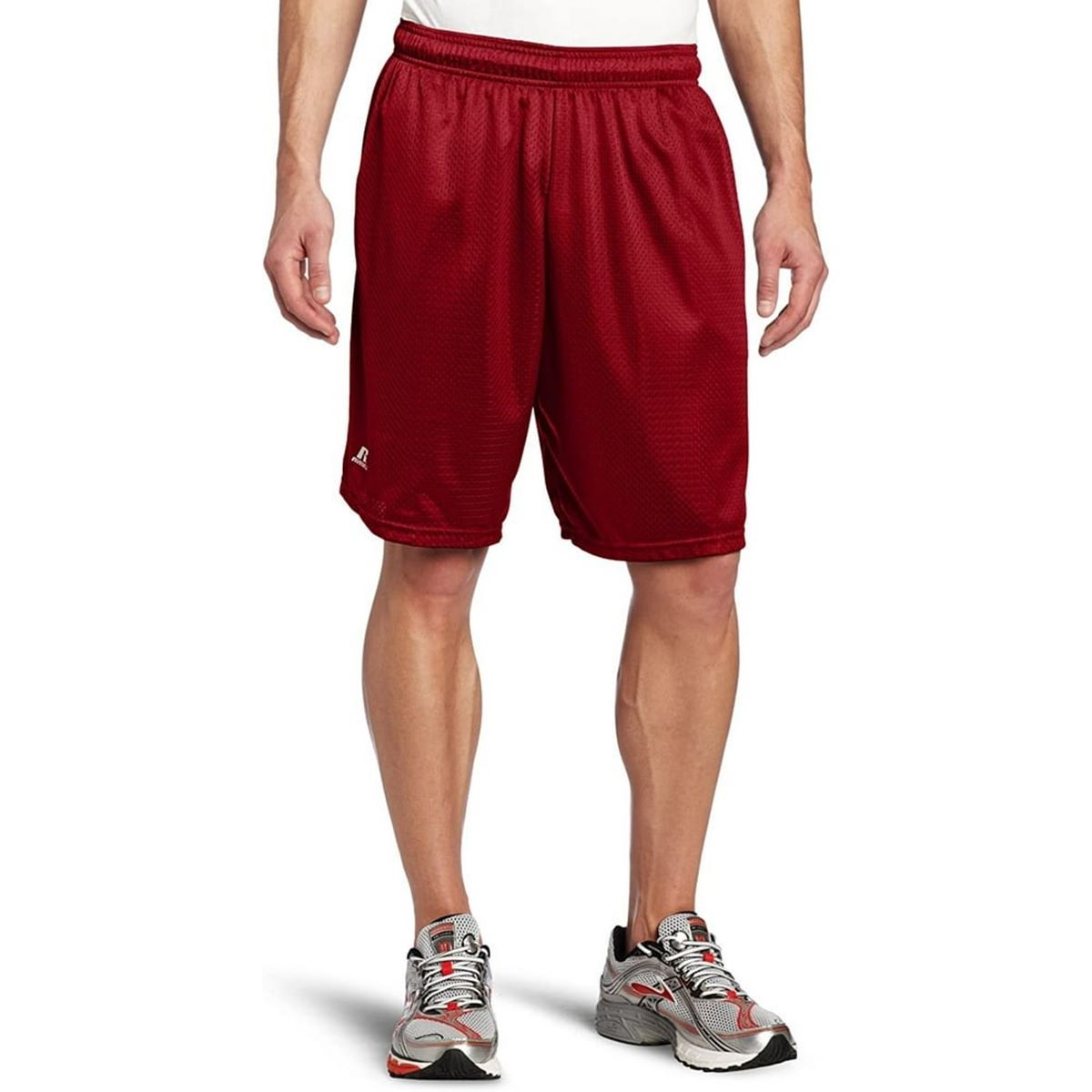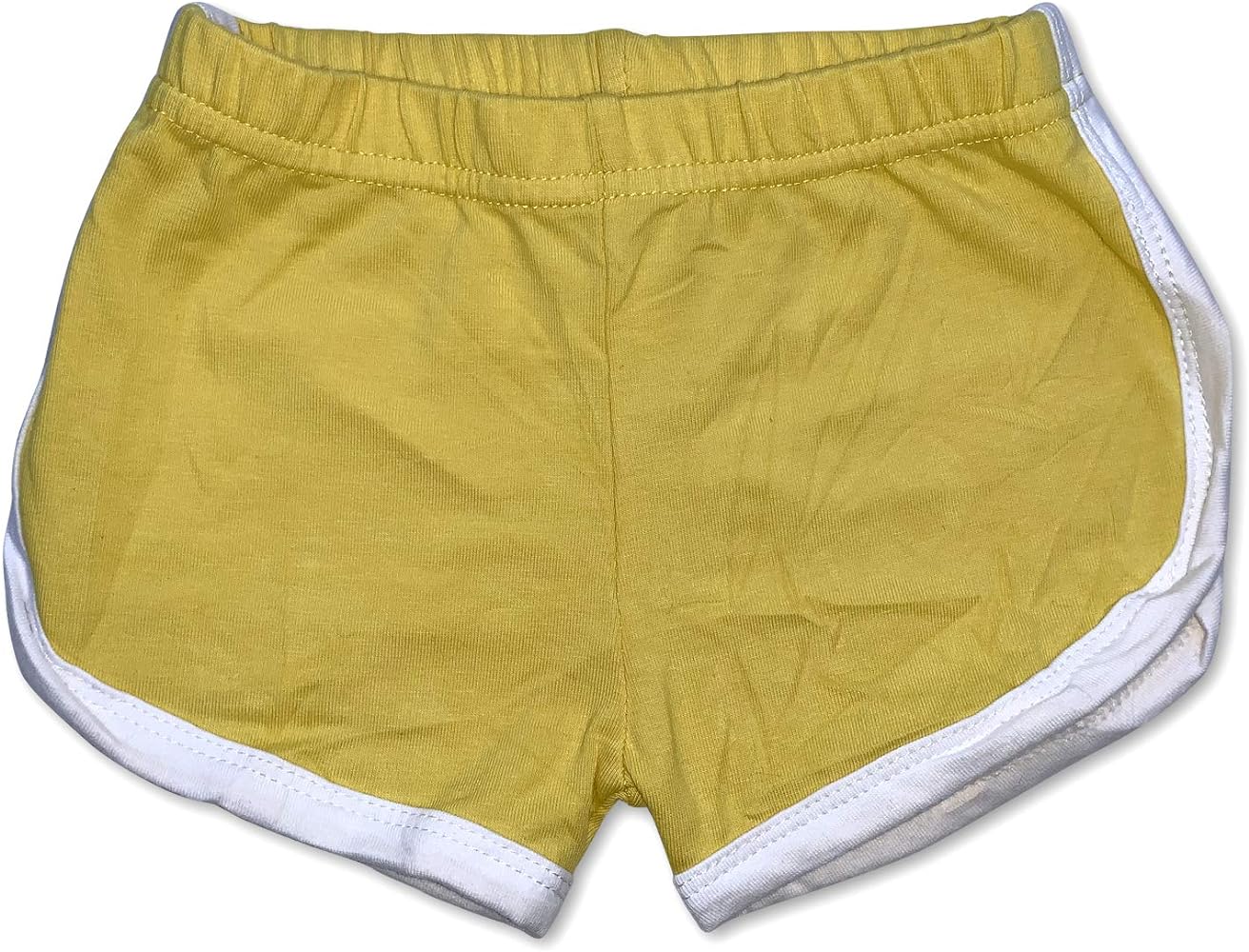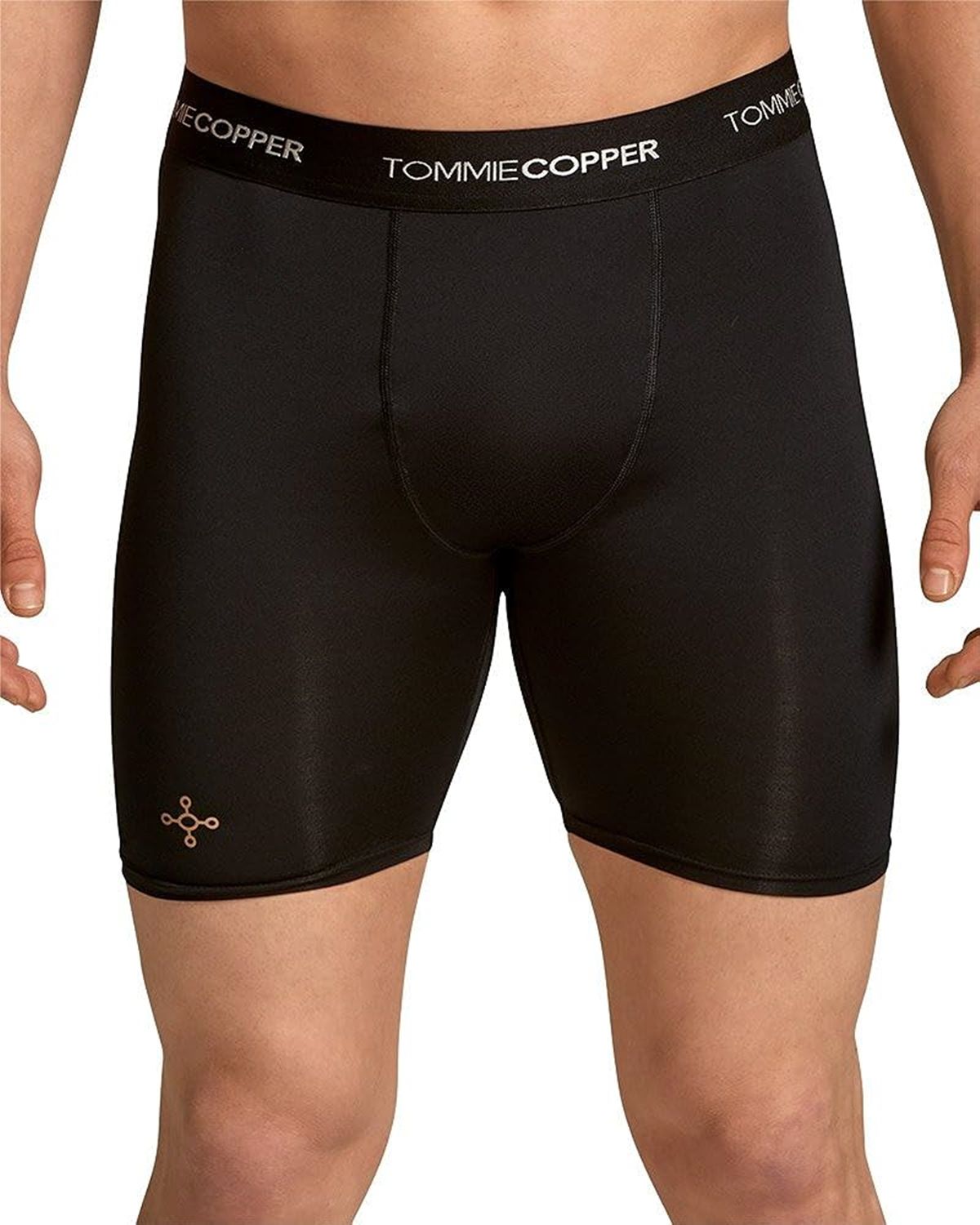

Featured
Why Does Pre-Workout Make Me Poop
Modified: January 2, 2024
Looking for answers to why pre-workout makes you poop? Discover the featured insights and find out the potential reasons behind this common phenomenon.
Introduction
Pre-workout supplements have gained popularity among fitness enthusiasts, providing an extra boost of energy and focus to maximize their workout performance. However, some people have reported an unexpected side effect: the need to visit the bathroom shortly after consuming pre-workout. This phenomenon has left many wondering why pre-workout makes them poop.
To understand this connection, it is important to first grasp the purpose and composition of pre-workout supplements. Pre-workout supplements are specially formulated blends of nutrients designed to enhance athletic performance. They typically contain ingredients such as caffeine, beta-alanine, creatine, and other stimulants that work together to increase energy levels, improve endurance, and enhance focus.
The link between pre-workout supplements and the digestive system is complex. While some individuals experience no digestive issues, others may notice an increased urge to visit the bathroom shortly after consuming pre-workout. This can range from mild discomfort to more urgent bowel movements.
In this article, we will explore the possible reasons why pre-workout makes some people poop and discuss the potential impact of specific ingredients found in these supplements. It is important to note that each person’s experience may vary, and consulting a healthcare professional is advisable if you experience severe gastrointestinal distress or have any underlying health conditions.
Now, let’s delve into the factors that can contribute to the bowel movements experienced after consuming pre-workout supplements.
Understanding Pre-Workout Supplements
Before we explore the connection between pre-workout supplements and bowel movements, let’s gain a better understanding of these products. Pre-workout supplements are designed to provide physical and mental benefits to individuals before their training sessions or workouts.
These supplements are typically made up of a combination of ingredients that work together to enhance various aspects of athletic performance. The primary goal of pre-workout supplements is to increase energy levels, improve focus, and reduce fatigue, allowing individuals to push harder during their workouts.
Common ingredients found in pre-workout supplements include:
- Caffeine: A stimulant that helps increase alertness, improve focus, and fight fatigue.
- Beta-Alanine: An amino acid that can boost endurance and delay muscle fatigue.
- Creatine: A compound that helps increase muscle strength and power.
- Branch-Chain Amino Acids (BCAAs): Essential amino acids that aid in muscle recovery and reduce muscle soreness.
- Arginine: An amino acid that promotes blood flow and nutrient delivery to muscles.
These ingredients, along with others like vitamins, minerals, and herbal extracts, work synergistically to provide the desired effects of heightened energy, focus, and performance during workouts.
It’s important to note that pre-workout supplements are not a magic pill, and their effectiveness can vary from person to person. The benefits experienced may depend on individual factors such as body composition, tolerance to certain ingredients, and overall health.
Furthermore, it’s crucial to follow the recommended dosages and instructions provided by the manufacturer when taking pre-workout supplements. Taking excessive amounts or combining multiple products can lead to adverse side effects and potentially harm your health.
Now that we have a basic understanding of pre-workout supplements, let’s explore the link between these supplements and their potential effects on the digestive system.
The Link between Pre-Workout and Digestive System
The digestive system plays a crucial role in breaking down food and absorbing nutrients for energy production. Therefore, it’s important to consider how pre-workout supplements can affect this system and potentially lead to bowel movements.
Firstly, the high caffeine content in pre-workout supplements can have a stimulating effect on the gastrointestinal tract. Caffeine is known to promote the production of gastric acid, which can increase the likelihood of digestive discomfort and bowel movements.
Furthermore, caffeine has a mild laxative effect and can stimulate the muscles in the intestines, leading to increased colon motility and potentially more frequent bowel movements. This can be particularly true for individuals who are sensitive to caffeine or consume large amounts of it throughout the day.
In addition to caffeine, another ingredient commonly found in pre-workout supplements, beta-alanine, may also influence the digestive system. Beta-alanine is an amino acid known for its ability to improve exercise performance by reducing muscle fatigue.
While the exact mechanisms are not fully understood, some individuals may experience tingling sensations, itching, or a flushing sensation when taking beta-alanine. These sensations, known as paresthesia, can also affect the gastrointestinal tract, leading to feelings of discomfort and potentially triggering bowel movements.
Other ingredients in pre-workout supplements, such as creatine, may indirectly affect the digestive system. Creatine is well-known for its ability to enhance muscle strength and power, but it can also cause water retention in the muscles. This increased water content can lead to transient weight gain and potential changes in bowel movements.
It’s worth noting that individual responses to pre-workout supplements can vary significantly. While some individuals may experience mild gastrointestinal discomfort or increased bowel movements, others may have no noticeable effects on their digestive system.
Next, we will explore some possible reasons for why pre-workout supplements can lead to bowel movements.
Possible Reasons for Bowel Movements after Taking Pre-Workout
Experiencing bowel movements shortly after taking pre-workout supplements can be a perplexing and uncomfortable experience. While individual responses can vary, there are several possible reasons why this may occur.
1. Stimulant Effect: Many pre-workout supplements contain stimulants such as caffeine, which can have a laxative effect on the digestive system. Caffeine stimulates the muscles in the intestines, leading to increased motility and the urge to have a bowel movement.
2. Increased Blood Flow: Some ingredients in pre-workout supplements, like arginine, can promote increased blood flow to muscles during exercise. This enhanced circulation can also affect the muscles in the gastrointestinal system, potentially leading to increased activity and bowel movements.
3. Gastrointestinal Sensitivity: Individuals with a sensitive gastrointestinal system may be more prone to experiencing bowel movements after taking pre-workout supplements. Certain ingredients, such as beta-alanine, can cause digestive discomfort and stimulate bowel movements in those who are more sensitive.
4. Dehydration: Dehydration can contribute to digestive issues, including changes in bowel movements. Some pre-workout supplements can have a diuretic effect, leading to increased fluid loss and potential dehydration. This can disrupt the normal functioning of the digestive system and result in more frequent bowel movements.
5. Individual Tolerance: Each person’s response to pre-workout supplements can vary based on their individual tolerance to specific ingredients. Some individuals may be more sensitive to certain stimulants or compounds, leading to gastrointestinal discomfort and bowel movements.
It’s important to keep in mind that experiencing bowel movements after taking pre-workout supplements does not necessarily indicate a negative or harmful effect. Unless the symptoms are severe or persistent, these effects are generally temporary and should subside as the body metabolizes the ingredients.
However, if you experience prolonged or severe gastrointestinal distress, it’s advisable to consult a healthcare professional to rule out any underlying health conditions or to find alternative supplements that are better suited to your individual needs.
Now that we have explored some possible reasons for bowel movements after taking pre-workout, let’s delve into the potential impact of caffeine and beta-alanine on digestion.
Caffeine and Its Impact on Digestion
Caffeine, one of the primary ingredients found in many pre-workout supplements, has a well-known stimulating effect on the central nervous system. This stimulant effect extends to the digestive system, where caffeine can influence bowel movements and digestion.
When consumed, caffeine acts as a diuretic, increasing urine production and potentially leading to dehydration. Dehydration can affect digestion by causing constipation or irregular bowel movements. It is essential to stay hydrated when consuming caffeine to minimize these effects.
Caffeine also stimulates the muscles in the intestines, promoting increased motility and speeding up the digestion process. This increased activity can lead to the urge to have a bowel movement shortly after consuming caffeine-containing beverages or supplements, including pre-workout.
While some individuals may experience no adverse effects, others may be particularly sensitive to the stimulating properties of caffeine. This sensitivity can result in gastrointestinal discomfort, including diarrhea or loose stools, after consuming pre-workout supplements.
Moreover, caffeine can also increase the production of gastric acid in the stomach, potentially leading to heartburn, acid reflux, or indigestion. These discomforts can cause individuals to feel the need to use the bathroom shortly after consuming pre-workout.
It is worth noting that the effects of caffeine on digestion can vary from person to person. Factors such as individual sensitivity, caffeine tolerance, and the amount consumed can all influence how caffeine impacts bowel movements and digestive processes.
To minimize potential digestive issues, it is advisable to consume caffeine in moderation and pay attention to how your body reacts to it. If excessive stool frequency or discomfort persists, it may be helpful to reduce caffeine intake or seek alternative pre-workout supplements that contain lower levels of this stimulant.
Next, we will explore the impact of beta-alanine, another common ingredient in pre-workout supplements, on the gastrointestinal tract.
Beta-Alanine and its Effects on the GI Tract
Beta-alanine, a popular ingredient in pre-workout supplements, is an amino acid that is known for its ability to enhance exercise performance and reduce muscle fatigue. While beta-alanine can offer several benefits, it may also impact the gastrointestinal tract.
One common side effect of beta-alanine supplementation is a tingling sensation, itching, or flushing, known as paresthesia. This sensation occurs due to the activation of nerve endings and is typically temporary and harmless. However, this stimulating effect on nerve endings can also affect the gastrointestinal tract, potentially leading to bowel movements.
Individuals who are more sensitive to beta-alanine may experience increased bowel movements or even diarrhea shortly after consuming pre-workout supplements containing this ingredient. It is important to note that not everyone will experience these effects, as individual tolerance varies.
Moreover, beta-alanine can also affect the release and regulation of neurotransmitters in the brain, such as neurotransmitters involved in gut motility, like dopamine and serotonin. These neurotransmitters can influence the movement and contraction of the intestinal muscles, potentially leading to changes in bowel movements after consuming beta-alanine-containing supplements.
While the exact mechanisms behind the effects of beta-alanine on the gastrointestinal tract are still being researched, it is important to be aware of these potential side effects and to listen to your body’s response when incorporating pre-workout supplements into your routine.
If the gastrointestinal discomfort or bowel movements experienced after taking pre-workout supplements become bothersome or persistent, it may be beneficial to consult a healthcare professional. They can provide guidance and help determine if beta-alanine is the cause or if there are any underlying conditions contributing to the symptoms.
Now that we have discussed the potential effects of caffeine and beta-alanine on the digestive system, let’s explore other ingredients in pre-workout supplements and their impact on digestive health.
Other Ingredients in Pre-Workout and Digestive Health
While caffeine and beta-alanine are often the main focus when discussing the effects of pre-workout supplements on digestive health, it is important to consider the potential impact of other ingredients as well.
Creatine: Creatine is a popular ingredient in many pre-workout supplements due to its ability to enhance muscle strength and power. However, some individuals may experience digestive discomfort, bloating, or diarrhea when taking creatine. These effects are typically mild and temporary but can be reduced by staying well-hydrated and starting with a lower dosage.
Branch-Chain Amino Acids (BCAAs): BCAAs, including leucine, isoleucine, and valine, are essential amino acids that aid in muscle recovery and reduce muscle soreness. While BCAAs themselves do not have a direct impact on digestion, certain formulations of pre-workout supplements may include additional ingredients or flavors that could potentially cause gastrointestinal distress in some individuals. It is important to read the labels and choose products that agree with your digestive system.
Herbal Extracts and Adaptogens: Many pre-workout supplements incorporate herbal extracts and adaptogen ingredients like ginseng, ashwagandha, or rhodiola rosea. While these natural ingredients may provide benefits such as improved endurance or reduced fatigue, they can also affect digestion in some individuals. Common side effects may include upset stomach, nausea, or gastrointestinal discomfort. It is essential to pay attention to how your body responds to these ingredients and consult a healthcare professional if you experience persistent or severe symptoms.
Sweeteners and Artificial Additives: Some pre-workout supplements contain sweeteners or artificial additives to enhance flavor or improve mixability. These additives, such as sucralose or artificial dyes, can be problematic for certain individuals. They may cause gastrointestinal distress, including bloating, gas, or diarrhea. Opting for supplements with natural sweeteners or minimal artificial additives can help reduce the risk of digestive issues.
It is important to recognize that everyone’s digestive system is unique, and individual responses to pre-workout supplement ingredients can vary. What works well for one person may not work the same for another. It is crucial to listen to your body, pay attention to how it responds to different ingredients, and make educated choices when selecting pre-workout supplements.
Note: If you have any underlying health conditions or concerns about your digestive health, it is always best to consult a healthcare professional before starting any new supplements or making significant changes to your routine.
Now that we have discussed the potential effects of different ingredients in pre-workout supplements on digestive health, let’s explore some tips to reduce bowel movements after taking pre-workout supplements.
Tips to Reduce Bowel Movements After Taking Pre-Workout
Experiencing frequent bowel movements after taking pre-workout supplements can be inconvenient and uncomfortable. While it may not be possible to eliminate this side effect entirely, there are some tips that may help reduce the likelihood or intensity of bowel movements. Keep in mind that individual responses can vary, so it’s important to find what works best for you.
1. Start with a Lower Dosage: If you are experiencing frequent bowel movements after taking pre-workout, try starting with a lower dosage and gradually increasing it over time. This allows your body to adjust to the ingredients more gradually, potentially reducing gastrointestinal discomfort.
2. Stay Hydrated: Dehydration can exacerbate digestive issues. Be sure to drink plenty of water before, during, and after your workouts. Staying hydrated can help maintain proper digestive function and minimize the risk of dehydration-related bowel movements.
3. Monitor and Adjust Caffeine Intake: Caffeine is a common culprit when it comes to bowel movements after taking pre-workout. If you are sensitive to caffeine, consider reducing your intake or opting for pre-workout supplements with lower caffeine levels. Experimenting with different caffeine amounts can help you find a balance that works for you.
4. Consider Taking Pre-Workout with Food: Consuming pre-workout supplements on an empty stomach can increase the likelihood of gastrointestinal discomfort. Consider taking your pre-workout supplement with a small snack or meal to help buffer the effects on your digestive system.
5. Read Labels and Choose Supplements Wisely: Not all pre-workout supplements are created equal. Carefully read the ingredient labels and choose products with ingredients that are less likely to cause digestive distress for you. Avoid supplements with known triggers, additives, or excessive amounts of stimulants that may exacerbate bowel movements.
6. Listen to Your Body: Pay close attention to how your body reacts to different pre-workout supplements. If a specific ingredient consistently causes gastrointestinal distress or frequent bowel movements, it may be best to avoid or minimize your intake of that particular supplement. Everyone’s body is different, so finding what works for you may require some trial and error.
If you continue to experience severe or persistent gastrointestinal distress after implementing these tips, it is essential to consult a healthcare professional. They can evaluate your specific situation, provide personalized advice, and help identify any underlying health conditions that may be contributing to your symptoms.
Now that we have explored tips to reduce bowel movements after taking pre-workout, it’s time to wrap up our discussion on the relationship between pre-workout supplements and the digestive system.
Conclusion
Pre-workout supplements can provide an extra boost of energy and enhance athletic performance, but they may also have an impact on the digestive system. Some individuals may experience bowel movements shortly after taking pre-workout, which can be attributed to various factors.
The stimulating properties of caffeine found in many pre-workout supplements can increase intestinal motility and lead to more frequent bowel movements. Beta-alanine, another common ingredient, can cause tingling sensations and potentially affect the gastrointestinal tract, resulting in digestive discomfort and bowel movements.
Other ingredients in pre-workout supplements, such as creatine, BCAAs, herbal extracts, and artificial additives, may also contribute to gastrointestinal distress in certain individuals.
To manage and minimize bowel movements after taking pre-workout, it is recommended to start with a lower dosage, stay hydrated, monitor caffeine intake, consider taking pre-workout with food, choose supplements wisely, and listen to your body’s response. Individual tolerance and preferences will play a significant role in finding the right approach.
It’s important to note that experiencing bowel movements after taking pre-workout supplements does not necessarily indicate a negative or harmful effect, and these effects are generally temporary. However, if severe, persistent, or accompanied by other concerning symptoms, it is advisable to consult a healthcare professional.
Remember, everyone’s digestive system is unique, and what works well for one person may not work the same for another. Paying attention to your body, making informed choices, and seeking professional advice when needed will help ensure a positive experience when incorporating pre-workout supplements into your fitness routine.
Through careful consideration and understanding, you can harness the benefits of pre-workout supplements while minimizing any potential gastrointestinal discomfort. Empower yourself with knowledge and take charge of your health and fitness journey.






